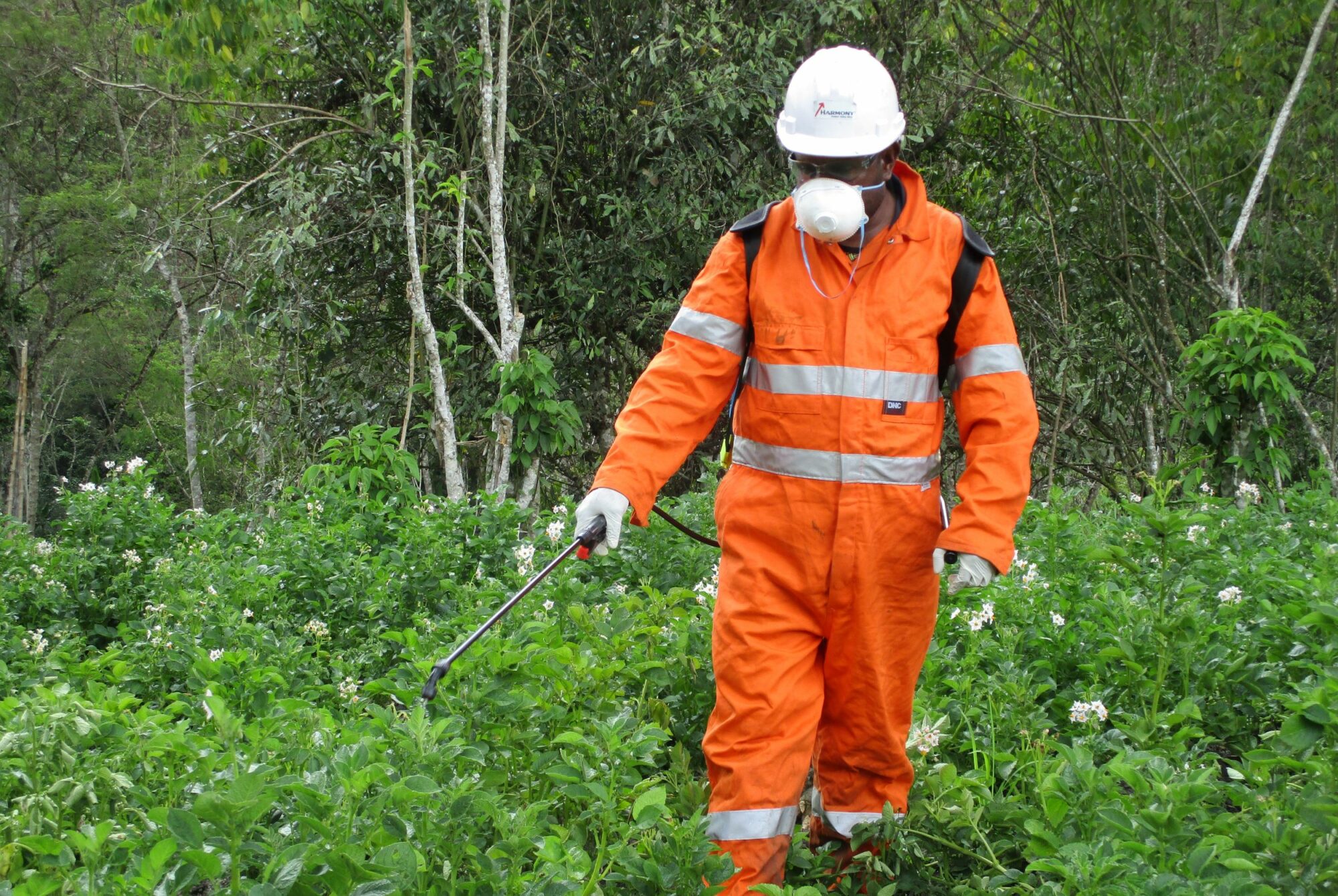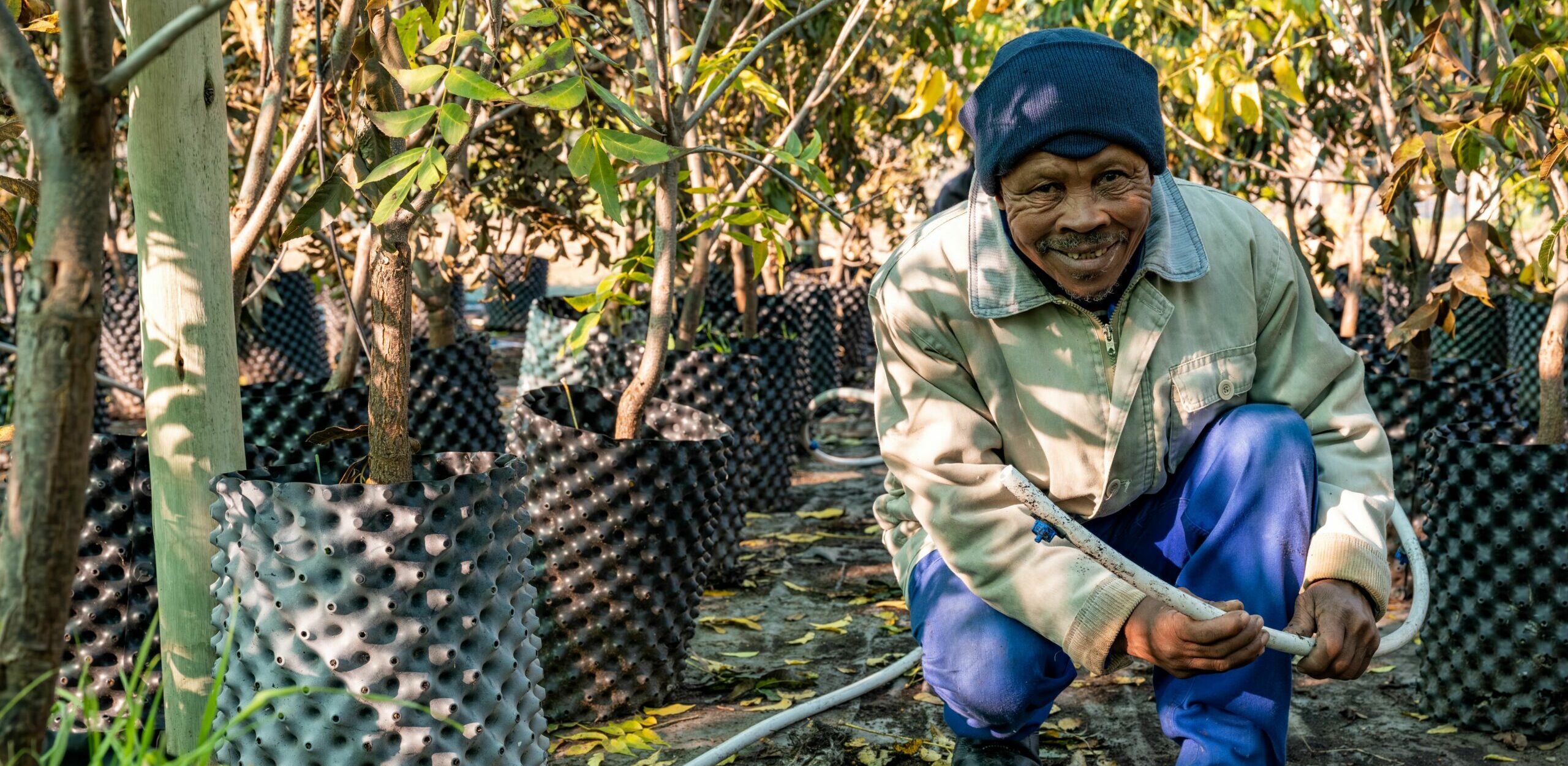Achieving meaningful and sustainable socio-economic development through agricultural programmes

Aligned with the SDGs, our agricultural initiatives in Papua New Guinea contribute to our MoA commitments and CSI initiatives.
In Papua New Guinea, stimulating non-mine related business is important to the ongoing socio-economic wellbeing of local communities in our operational and project areas. Our agricultural programmes also work to address the Morobe Province’s strategic economic priorities to increase production and downstream processing of cash crops. During FY23, at Hidden Valley we broadened our agricultural programme from coffee to include pilot poultry and potato cultivation initiatives, while at Wafi-Golpu, our cocoa partnership programme continued to expand:
- Nauti coffee farmers established the Tia Hanama Weta Cooperative Society, enabling collective benefit from economies of scale and facilitating improved access to goods, services and other opportunities
- Responding to growing demand for meat birds in Papua New Guinea, the poultry pilot project tapped into the local cash economy by establishing a village-based system of 14 smallholder farmers in Nauti, Kuembu and Winima who are committed to selling poultry within their villages beyond the project’s pilot stage
- Our pilot Irish potato cultivation project’s semi-subsistence model enables farmers in Nauti and Winima villages, who have traditionally farmed sweet potato (“kaukau” in local dialect), to generate surplus produce beyond their families’ needs to sell for regular income, capitalising on Papua New Guinea’s growing demand for Irish potatoes, including in urban Bulolo near Hidden Valley
- Our Cocoa Partnership Programme, with the Cocoa Board of Papua New Guinea, now encompasses five cocoa cooperatives including Babuaf, Lower Watut, Labuta, Wabubu and Nasuapum, with the Nasuapum cooperative of 200 farmers joining the programme in March 2023. Conservatively, the programme generated an estimated R19 million (PGK3.8 million) of cocoa sales in FY23, with efforts underway to improve the rigour of sales data collected.
During FY23, the programme at Hidden Valley included basic bookkeeping training (tailored to address the challenges faced by local residents and businesses) to complement the range of agricultural initiatives in our host communities and benefit other entrepreneurs such as traders with market stalls. We intend to advance the programme with apiculture (beekeeping for honey production), tilapia farming and an expanded coffee project in additional villages.
